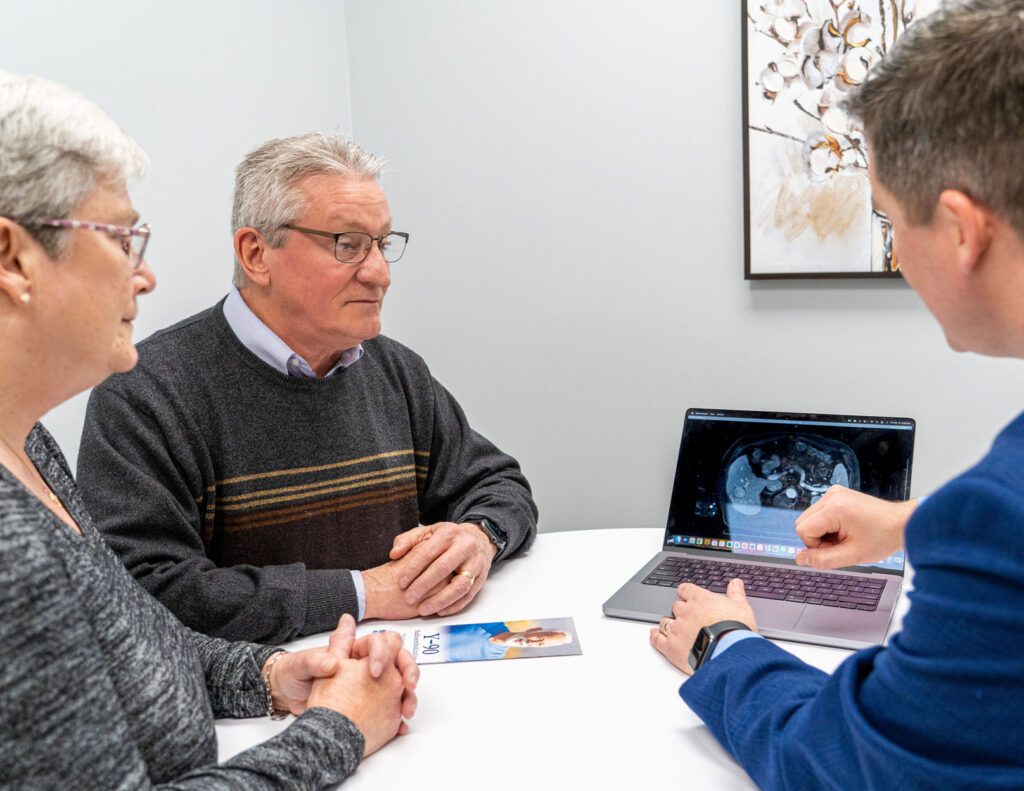
Surgical removal of liver tumors offers patients the best chance for a cure. Unfortunately, this may not be possible because the tumors have become too large, or they have grown into major blood vessels or other vital structures. Sometimes, many small tumors are spread throughout the liver, making surgery too risky or impractical. In fact, surgical removal is not possible for more than two-thirds of primary liver cancer patients and 90 percent of patients with secondary liver cancer.
New and minimally invasive treatment for cancer
Embolization – A procedure to cut off the blood supply feeding the tumor, using medications or synthetic materials called embolic agents.
Radioembolization – Also referred to as “Y-90” radioembolization, this procedure uses special microparticles to deliver targeted radiation to the tumor—in addition to cutting off its blood supply.
Chemoembolization – Similar to radioembolization, this technique uses microparticles coated with chemotherapy drugs instead of radiation.
Microwave ablation – This procedure uses heat generated by microwave energy to directly destroy tumor cells.
Cryoablation – A treatment that uses an extremely cold gas to “freeze” tumors in order to destroy them.
Each of these techniques is very precise, delivering targeted treatment to the tumor while minimizing damage to healthy surrounding tissue. Since every patient is different, the procedure we use depends on your unique circumstances. We are happy to consult with your care team to recommend the best and most appropriate treatment for you.
